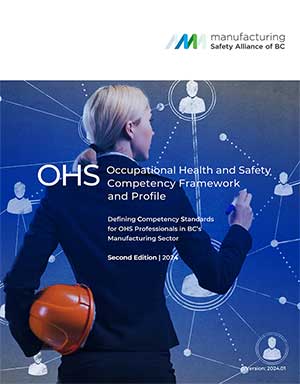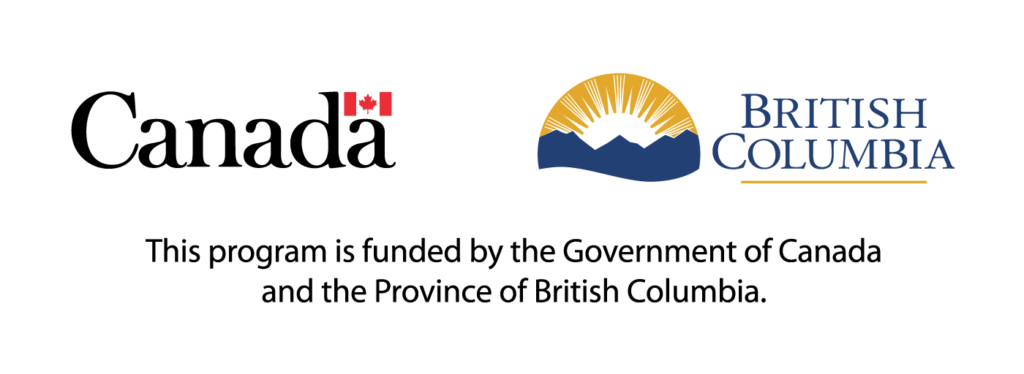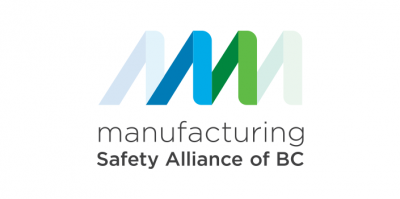Occupational Health and Safety (OHS) Competency Framework and Tools
Welcome to the OHS Competency Framework and Tools. In partnership with the Ministry of Post-Secondary Education and Future Skills, MSABC developed the OHS Competency Framework and Tools to foster a common understanding of what unique knowledge and skills should OHS professionals practicing in BC possess. This Framework and the resulting OHS Assessment Tools help bridge the understanding and expectations of and for the OHS profession. This ultimately represents a critical first step towards establishing consistency and stability within the OHS profession.
If you are an OHS professional or working towards that goal, use the Competency Assessment Tool below to see how you measure up against this standard. If you are an employer, use the Needs Assessment Tool to get content and information that you can include in a job posting for an OHS professional. If you provide OHS training and education, look through the OHS Framework to see what industry requires in terms skills.
Important
The role of the OHS professional is always evolving as the needs of industry change. The people in this role have adapted and developed a diverse range of skills to help workplaces maintain regulatory compliance and promote worker health and well-being.
Today, a trained and experienced OHS Professional is armed with a multidimensional skill-set that determines their overall competency.
Using the OHS Competency Assessment Tool, better understand what skills you might need to expand your capacity and career as an OHS professional.
Competent OHS professionals help ensure workplace health and safety by:
- evaluating and mitigating risk,
- building effective programs to support a healthy and safe work environment, and
- fostering a culture of physical and psychological wellness and respect.

OHS Competency Framework and Profile
(Second Edition)
This Framework is intended to be used by anyone engaged with the OHS profession, including:
- people responsible for professional development and training for OHS professionals,
- people hiring OHS professionals, and
- OHS professionals themselves.
Educational institutions can use the Framework to evaluate their OHS curricula, assisting in the development of training programs that are consistent with industry and professional needs and expectations.
The information contained in this Framework was translated into the OHS Competency and Needs Assessment Tools for OHS professionals and employers.
Behind the OHS Competency Framework
The OHS profession is experiencing significant changes due to factors such as advancements in information technology and growing diversity in the workforce. While regulatory compliance is still an important focus area, the profession is shifting towards a more holistic preventative approach to promoting worker health, safety, and well-being.
Practitioners today have to be able to gather and use data and evidence from multiple sources to influence and engage senior management, workers, and other stakeholders to build and maintain an effective safety culture. As a result, OHS practitioners require effective communication, management, and industry-specific technical skills in addition to knowledge of traditional health and safety topics, occupational and industrial hygiene, psychological health, and human factors.
Worker fatalities, injuries, and illnesses all have significant impacts on people and the economy. Yet currently, the OHS profession in Canada remains unregulated, and employers and practitioners lack consistent and reliable information on what a qualified OHS professional should be able to do to support an organizations and its employees.
Sector Labour Market Project
To address this critical gap and work towards standardizing the profession, the Manufacturing Safety Alliance of BC, in partnership with the BC Ministry of Post-Secondary Education and Future Skills, has been working through the Sector Labour Market Partnership program. Since 2016, this project has engaged with scores of OHS professionals, subject matter experts, researchers, industry leaders, and educators—stakeholders who share a passion for improving the state of the OHS profession within BC, Canada, and internationally. This project has defined core competencies and knowledge needed by OHS professionals to meet the evolving health and safety needs of the manufacturing sector, and this Framework is the outcome of that project.
The OHS Competency Framework, developed through consultation, consensus, and rigorous validation, can now be applied by professionals, organizations, and educators to foster a common understanding of the unique knowledge and skills OHS professionals practicing in BC should possess. This ultimately represents a critical first step towards establishing consistency and stability within the OHS profession.
» Learn more about the Sector Labour Market Partnership.
Project Partners




